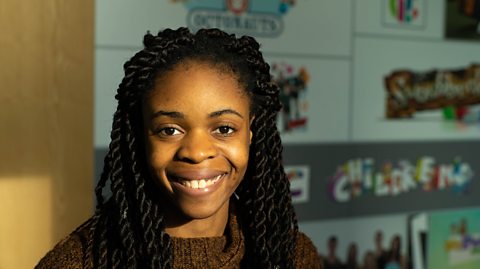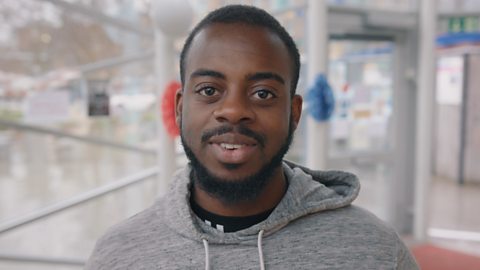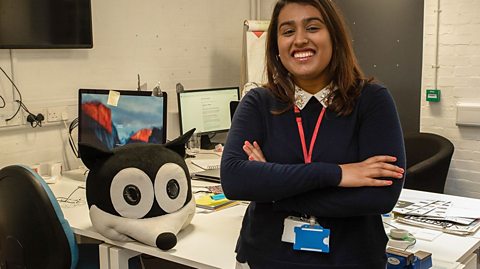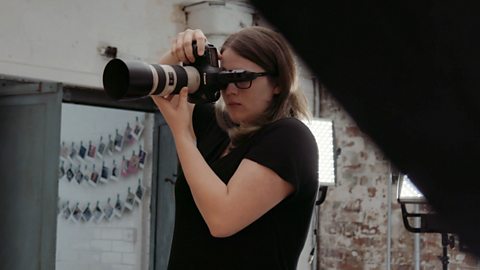Meet, Louise, 25, a development assistant for the BBC Children's department. Part of our Bitesize world of work series.

I was really passionate about English and stories and I was really creative, so that’s helped me massively in my role.

How would you describe your job?
My job involves supporting the teams in the BBC Children's department who work on the stories for animations and Interactive Scripted Content. It includes finding talent ie new writers and directors.
What are some of your day-to-day tasks?
We get a lot of scripts in and I give notes to my team about whether I think the writers and projects are a good fit for us. For projects with the development team, I give notes to writers, giving feedback on scripts they've sent us. My tasks also include researching new writers, logging scripts, story-lining and brainstorming ideas for shows, making content for the website, or organising events.
What skills do you use?
Attention to detail is an important skill. Written skills are important too because you’re writing a lot of emails and writing notes for writers. Research is a big part of my job, for example researching new writers and directors. Organisational skills are also really helpful because you’re doing different things every day, so you need to know what order you're doing things in.
Which subjects have helped you?
English Literature was really helpful for me because you’re analysing stories, characters and structure. A big part of my job is reading scripts and analysing them. History is another subject that helped me because a lot of history involves research. For a lot of the shows that I’ve worked on, I’ve had to research certain topics.
How did you get into your job?
I did a traineeship with the BBC Children’s Drama Development Team, which was paid, so that was really helpful and I managed to get a job and stay on after my training.


Top tips
- Even if you're not in a job, watch and read as much as you can to keep up-to-date with what's going on, as it's useful to be able to talk about those things in an interview
- You don’t need to have all the answers straight away. One thing I would say is, if you are passionate about something, pursue that. I knew I loved English, so whatever I was doing, I would pursue that, because you should be doing a job you’re passionate about.

A similar role to a development assistant is a screenwriter. Screenwriters write the stories for feature films, TV programmes and computer games.
What to expect if you want to be a screenwriter
- Screenwriter average salary: Variable
- Screenwriter typical working hours: 37 to 39 hours per week
What qualifications do you need to be a screenwriter?
You could get into this role via a university course, a college course, applying directly, or specialist courses run by private training providers.
As a new writer, you could get yourself noticed by entering screenwriting competitions. These competitions are run by broadcasters and regional screen agencies to discover new talent. Once you've had some work accepted and started to build a professional reputation, producers might then commission you to produce scripts for them. You can also find advice about submitting your work to the BBC at BBC Writers Room.
Sources: LMI for All, National Careers Service
This information is a guide and is constantly changing. Please check the National Careers Service website for the latest information and all the qualifications needed.
For careers advice in all parts of the UK visit: National Careers Service (England), nidirect (Northern Ireland), My World of Work (Scotland) and Careers Wales (Wales).


Find out more
Work experience in your area
Find work experience placements with Workfinder.
Tips and advice
Help with interviews, writing a CV and all things work experience related.


Jaidon: rap workshop leader. video
Jaidon's a rap workshop teacher and youth ambassador.

Rosie: science journalist
Rosie's the editor for the science section of a student-run magazine.

Corinne: photographer. video
Corinne runs her own photography business.
